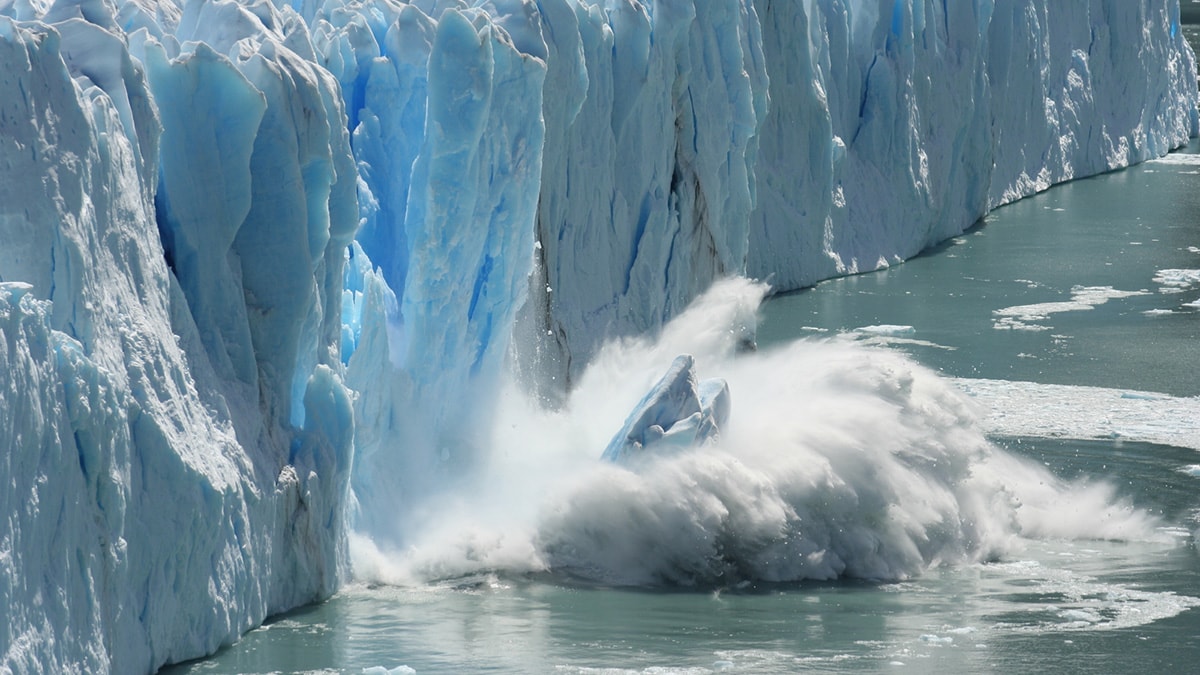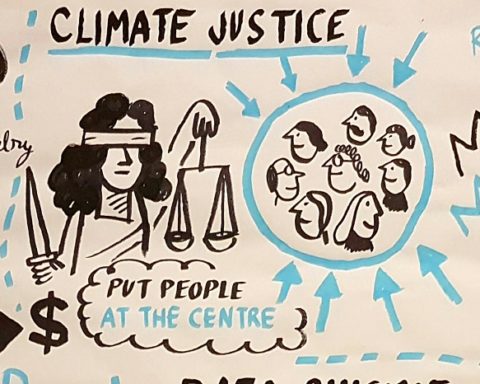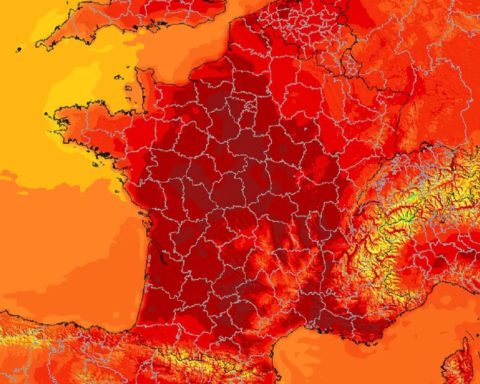 This article is published as part of UP' Magazine's partnership with Covering Climate Now, a global collaboration of 300 selected media outlets to strengthen news coverage of climate change.
This article is published as part of UP' Magazine's partnership with Covering Climate Now, a global collaboration of 300 selected media outlets to strengthen news coverage of climate change.
Fighting climate change: a movement that nothing can stop
by António Guterres
On the eve of the UN Climate Action Summit in September, millions of young women and men mobilized around the world to tell world leaders: "You are failing. »
They're right.
Global emissions are increasing. Temperatures are rising. The consequences for oceans, forests, weather, biodiversity, food production, water, jobs and ultimately human lives are already terrible and will only get worse.
The science is incontrovertible. But in many parts of the world, people do not need maps or graphs to understand the climate crisis. Just look out the window.
From California to the Caribbean, from Africa to the Arctic, climate chaos is very real. And it is those who have contributed the least to the phenomenon who suffer the most.
Why not enjoy unlimited reading of UP'? Subscribe from €1.90 per week.
I have seen it with my own eyes in Mozambique, ravaged by cyclones, in the Bahamas, devastated by a hurricane, or in countries in the South Pacific threatened by rising waters.
I have convened the Climate Action Summit to create the momentum to get us on track before the crucial 2020 deadlines set by the Paris Accord. Many leaders from different countries and economic sectors have mobilized.
A broad coalition has been formed to move forward together towards solutions to avert climate catastrophe, a coalition that includes not only states and youth but also businesses, cities, investors and civil society organizations.
More than seventy countries have committed to achieving zero net carbon emissions by 2050, although major emitters have not yet done so. More than 100 cities, including some of the world's largest, have made the same commitment.
At least seventy countries have announced their intention to strengthen national plans adopted under the Paris Agreement by 2020.
Small island States have collectively committed to achieving carbon neutrality and 100% of renewable energy by 2030.
Many countries, including Pakistan, Guatemala, Colombia, Nigeria, New Zealand and Barbados, have vowed to plant more than 11 billion trees.
More than 100 private sector leaders have committed to accelerate their transition to the green economy.
A group of the world's largest holders of financial assets - representing more than $2 trillion - has pledged to make its investment portfolios carbon neutral by 2050.
This commitment comes in addition to the recent call by asset managers representing nearly half of the world's invested capital, some $34 trillion, for world leaders to put a meaningful price on carbon and phase out fossil fuel subsidies and coal-fired power plants worldwide.
To fight against disinformation and to favour analyses that decipher the news, join the circle of UP' subscribers.
The International Development Finance Club has announced the mobilization of one trillion dollars by 2025 for the financing of clean energy in 20 least developed countries.
One third of the world's banking sector is committed to conducting its business in accordance with the objectives of the Paris Accord and the Sustainable Development Goals.
The Summit also illustrated how cities and global industries such as shipping can significantly reduce their emissions. We also showcased projects to protect forests and conserve water resources.
But all these initiatives, important as they are, will not be enough.
From the outset, the goal of the Summit was to raise awareness around the world and accelerate action on a larger scale. The Summit was also a forum to remind people of difficult truths and to shine a spotlight on those who act and those who do not. Those who deny climate change and the major emitters can no longer hide.
I will continue to encourage them to do much more at home and to support green economic solutions around the world.
Our planet requires a truly planetary mobilization. This will not happen overnight and without the full commitment of those who contribute most to the crisis.
If the world is to avoid the climate precipice, we need to do much more to answer the call of the scientific community and reduce greenhouse gas emissions by 45% by 2030; achieve carbon neutrality by 2050 and limit the rise in temperature to 1.5 degrees by the end of the century. This is the only way to ensure the future of our world.
Too many countries still seem to be addicted to coal, even though cheaper and more environmentally friendly solutions are already available. We need to make much more progress on carbon pricing, ensure that no new coal-fired power plants are built from 2020 onwards, and remove the trillions of dollars in taxpayer-paid subsidies for a disappearing fossil industry that exacerbates hurricanes, spreads tropical diseases and fuels conflict.
At the same time, developed countries must meet their commitment to raise $100 billion a year from public and private sources by 2020 to assist developing countries in their efforts to mitigate and adapt to climate change.
I will ensure that the commitments made by countries, businesses and local authorities are followed up, starting in December at the United Nations climate conference in Santiago, Chile. The United Nations is united in supporting the full implementation of these initiatives.
Climate change is the great struggle of our time.
The scientific community tells us that at the current rate, temperatures will have risen by 3 degrees Celsius by the end of the century. I won't be here, but my granddaughters will be.
I refuse to be complicit in the destruction of their one and only home.
Young people, the United Nations, and an ever-growing number of business leaders, investors, heads of State and civil society leaders - in short, many of us - are mobilizing and taking action. But to be successful, we need many more of us.
We certainly have a long way to go. But a movement has been born.
António Guterres, Secretary-General of the United Nations












